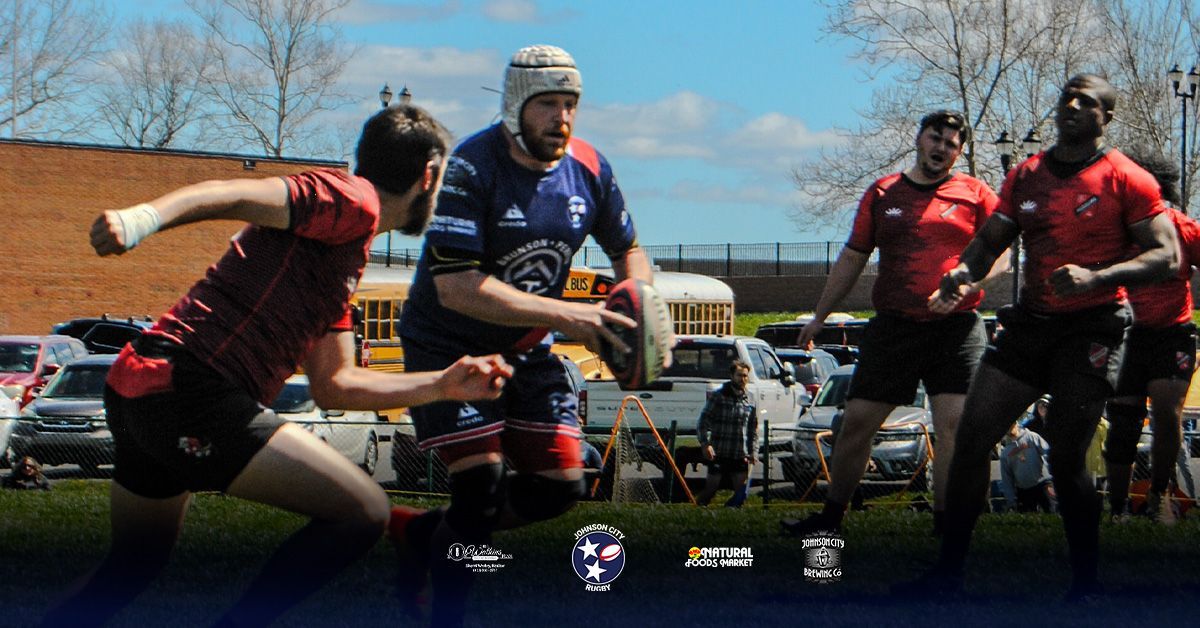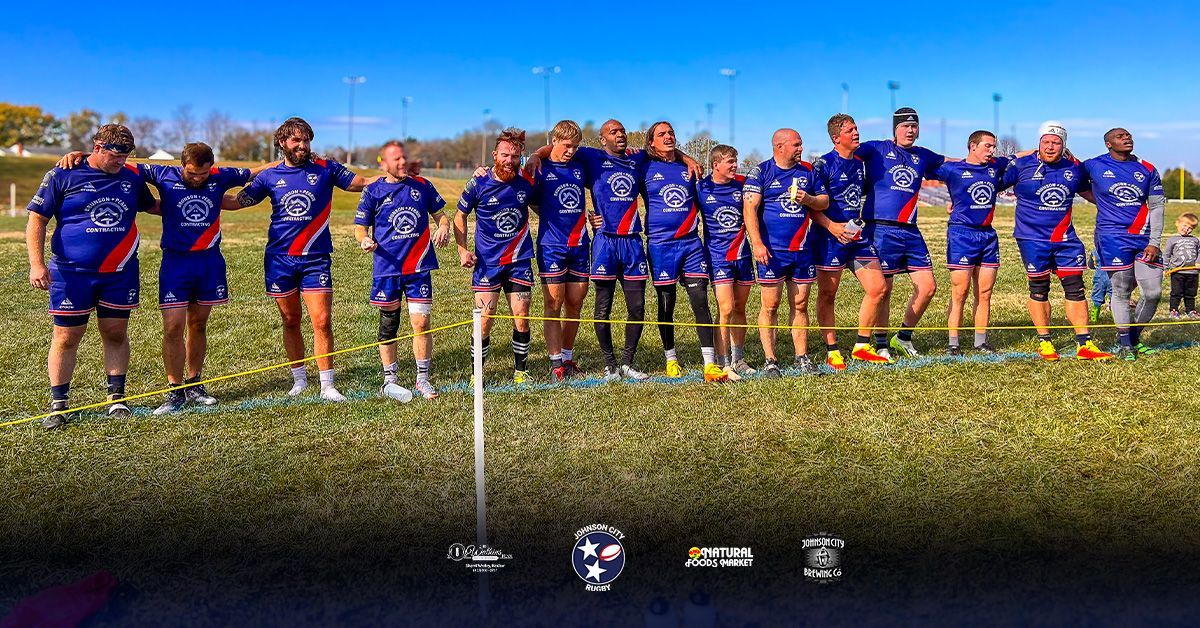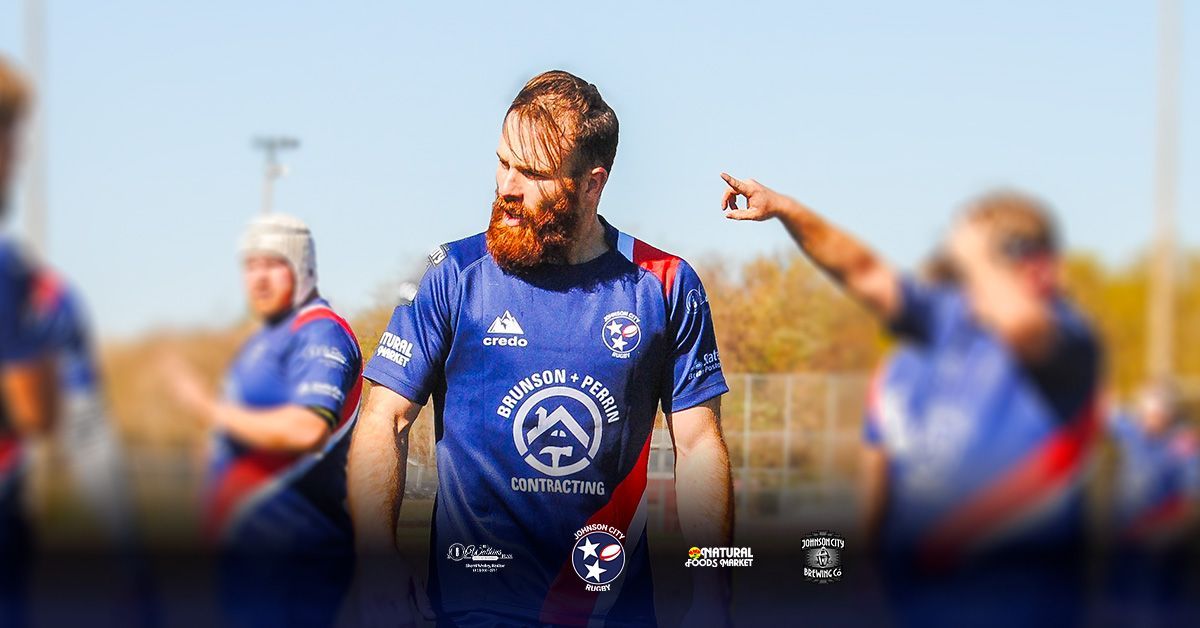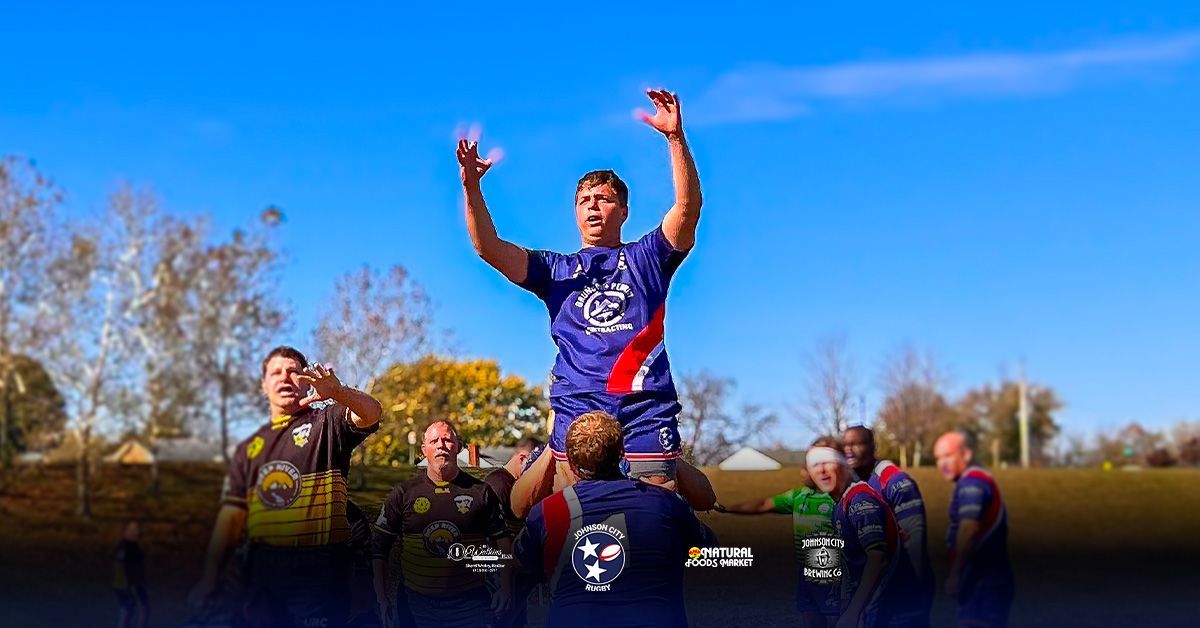A Look Inside
Connecting with the heart of Johnson City Rugby
A Look Inside

This summer, Johnson City Rugby is hosting Wagon Wheel 10’s, a fast-paced 10-a-side tournament featuring men’s and women’s brackets. Teams from across the region will take the field, bringing strong competition and high-energy play. The tournament will take place at: Woodland Elementary 2303 Indian Ridge Rd, Johnson City, TN 37604 Registration is open, and teams are locking in their spots.

As Johnson City Rugby gears up for another promising year, two pillars of leadership, Andy Slagle and Adam Jasenak, continue to shape the team’s future with their unwavering commitment and vision. Their passion and dedication are the driving forces behind the success and growth of the club, both on and off the field.

At Johnson City Rugby, a new year means fresh leadership and ambitious goals to drive our club forward. With a strong leadership team now onboarded, we’re setting our sights high for 2025, focusing on growth, community engagement, and fostering connections that strengthen the sport we love. Here’s how our leaders are stepping up to ensure success this year:

In rugby, commitment is more than a promise—it’s an unshakable mindset, a drive to push boundaries, and an eagerness to build something extraordinary alongside your teammates. For Johnson City Rugby, players like Colby Waltenburg and Jason Beverung epitomize what it means to be “ready” in every sense of the word.

As we step into a new year, Johnson City Rugby is proud to announce our updated Board and Team Officers. With returning leaders and fresh faces stepping into new roles, we’re excited to build on the progress of the past year and keep pushing forward into 2024. Board of Directors • President – Adam Jasenak Adam continues as President, bringing four years of dedicated service to Johnson City Rugby—two as Vice President and now entering his second year as President. • Vice President – Amanda Blackwelder Amanda returns as Vice President after a strong first year of leadership and a commitment to growing our club on and off the field. Team Leadership • Men’s Director – Collin Waldron Stepping into this new position, Collin brings two years of experience with Johnson City Rugby and a passion for building the men’s program. • Men’s Recruiting & Retention – Andy Slagle Andy joins the leadership team for the first time, ready to take charge of recruiting and retention to help our men’s program thrive. • Women’s Director – Ashley Joyner After a successful year with Johnson City Rugby, Ashley steps into the Women’s Director role, focused on driving growth and success for the women’s program. Looking Ahead Along with electing our new leadership team, we’re proud to announce updates to our Constitution as we position Johnson City Rugby for continued success in the new year. These changes reflect our goals of growth, organization, and a commitment to serving our players and community. With strong leadership and clear direction, 2024 is already shaping up to be an exciting year. We’re ready to work, grow, and welcome new players into the Johnson City Rugby family. This is your year to join us—let’s build it together.

This past weekend, we gathered at Johnson City Brewing Company – Boones Creek to celebrate an incredible fall season and enjoy some well-deserved time together off the field. The Winter Banquet was a perfect mix of recognition, laughter, and community—a fitting close to a memorable season. The Gingerbread Awards One of the highlights of the night was our Gingerbread Awards—fun, lighthearted paper plate awards that celebrated the unique personalities, hard work, and quirks of our team. From standout moments on the pitch to the stories we’ll tell for years to come, everyone walked away with a smile (and maybe a little good-natured teasing). These superlatives reminded us what makes Johnson City Rugby more than just a team—it’s the bond we share, the support we show, and the memories we create together. Celebrating the Fall Season This fall brought growth, challenges, and unforgettable moments, and the banquet gave us time to reflect on everything we accomplished. From hard-fought games to the camaraderie that carries us through, we’re proud of how far we’ve come and excited for what’s ahead. As we celebrated our fall season, it wasn’t just about the wins or the tries—it was about the team we’ve become and the foundation we’re building for the future. Looking Ahead With the winter break underway, we’re already looking forward to what’s next. Practices resume in February, and we’re ready to hit the ground running. This is just the beginning. Stay tuned—your time to join is coming.

On December 7th, Johnson City Rugby headed to Knoxville for the Santa 7’s tournament, where rugby met holiday spirit in the best way possible. It was a day full of competition, costumes, and plenty of laughs—proving once again why this team is something special. We played three games on the day, securing one win and leaving the field with smiles, stories, and a stronger bond as a team. Both our women’s and men’s sides hit the pitch, decked out in festive ugly sweaters that turned heads and kept the holiday vibes strong. Penalties even came with a twist—players received “coal cards” and had to spin a wheel for fun punishments, like decorating and eating cookies mid-tournament. Standout Moments • Ashley Joyner scored her first-ever try—a massive milestone and one to remember. • Cristen “Buckets” Cox stepped onto the field for her first game with Johnson City Rugby and brought energy and excitement to the squad. • Adam Jasenak led the way with 2 tries and 2 conversions, showing skill and consistency throughout the day. • In his debut, Zach Thompson made his mark with a try of his own. • Jason Beverung added to the tally, crossing the line to finish a strong team effort. More Than Just Rugby Santa 7’s wasn’t just about the scoreline—it was about having fun, celebrating the sport, and building connections as a team. Between the costumes, the penalties, and the post-game laughs, this tournament gave us exactly what we needed: time together in a lighthearted, competitive environment. Looking Ahead As we wrap up 2024, we’re excited to keep this momentum rolling into the new year. While the offseason continues, we’ll be back on the field in February to build on what we’ve learned, grow stronger, and welcome new teammates into the fold. Your time to join is coming—stay tuned.











